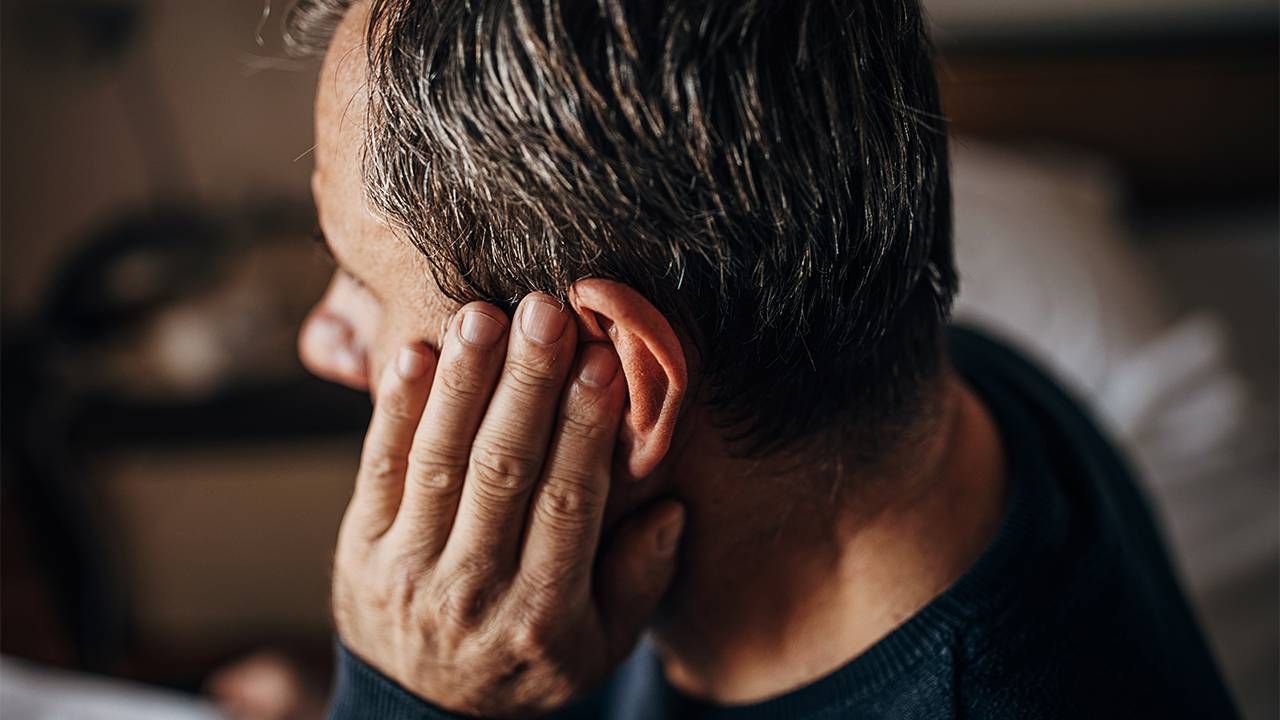Do You Hear Ringing in Your Ears?
Tinnitus, or ringing in the ears, intrudes on our silence and affects our hearing. But there are new treatments on the horizon.
Do you hear a constant ringing in your ears or a whooshing or even a crackling? Or is it in your brain? The problem can become a noise monster, making it hard to focus on your daily life.

You are not alone. Tinnitus, or ringing in the ears, affects millions of Americans every year. Actor William Shatner of "Star Trek" fame developed tinnitus after he stood too close to a special effects explosive on the set of one episode. Rocker Pete Townshend of The Who believes that exposure to loud music and special effects resulted in his tinnitus.
While there is no cure for tinnitus, there are treatments — including some new ones.
According to the American Tinnitus Association (ATA), about 30% of adults over 50 deal with tinnitus. In many cases, it is likely linked to age-related and noise-induced hearing loss.
What Is Tinnitus?
Tinnitus is the perception of sound in your ears when there is no sound present, according to the ATA. It can present as different types of sound, including ringing, chiming, hissing or clicking. Some sufferers even hear music. Tinnitus can be temporary, but many people endure chronic tinnitus.
"Because you lose the connection of the auditory nerve with the sensory organ in the inner ear, the brain is losing auditory input," says Stéphane F. Maison, a tinnitus researcher at Mass Eye and Ear in Boston. "In turn, the brain jacks up its gain to compensate for the loss. As a result you perceive a tone that is not there."
There are two primary types of tinnitus:
- Subjective tinnitus consists of noises that only the patient can hear. This type of tinnitus can have a number of causes including hearing loss or sound trauma. The majority of tinnitus cases fall into this category.
- Objective tinnitus is often produced by the circulatory system or musculoskeletal movement in the body. The noises can often be heard by others. The ATA says that less than 1% of reported cases of tinnitus are objective. “In rare cases, [objective] tinnitus can occur as a rhythmic pulsing or whooshing sound, often in time with your heartbeat,” according to the Mayo Clinic. “This is called pulsatile tinnitus. If you have pulsatile tinnitus, your doctor may be able to hear your tinnitus when he or she does an examination.”
"[Tinnitus] can be caused by exposure to loud sounds, hearing loss or medications, and is a symptom of several medical conditions," says Sara K. Downs, owner/director of Hearing Wellness Center and Tinnitus Treatment Centers located in Minnesota and Wisconsin.
Older adults often have tinnitus as a symptom that accompanies hearing loss, thyroid dysfunction and other conditions that occur with advancing age.
"I see tinnitus begin around the time of retirement for many clients," Downs says. "All of a sudden, their world is a bit more quiet and they begin to notice the tinnitus which may have been hidden by the hustle and bustle before retirement."
What Are the Treatments for Tinnitus?
Tinnitus becomes a severe debilitating condition in only about 2 million cases, says Downs. "In cases of chronic and severe tinnitus, the body's natural habituation process does not allow the tinnitus signal to fade into the background. For these people, it is important to engage in sound therapy and tinnitus counseling to find relief."
Schedule an appointment with an audiologist who has specialized training in tinnitus treatment for an evaluation, says Downs. The audiologist will determine the type of tinnitus you are experiencing and create a customized treatment plan.
Treatments can vary, depending on the severity or type of tinnitus and whether there are health conditions that could play a role in treatment. Treatments include:
- Earwax or ear blockage removal
- Hearing aids (if the tinnitus is caused by age-related or noise-induced hearing loss)
- Modification of, or changes to, medications
- Surgery (in objective tinnitus cases)
- White noise or other masking devices
Tinnitus retraining therapy may include a combination of sound masking and counseling to lower the stress related to tinnitus. A behavioral therapist or mental health professional could help you learn coping strategies for living with tinnitus.
"Physicians may provide drugs to address stress, anxiety and depression, as the latter can be a consequence of chronic subjective tinnitus and can exacerbate tinnitus," says Maison.
New Treatment Options
But there are now alternatives to pharmaceutical and medical treatments.
"In addition to using counseling and sound therapy, I am teaching patients self-care techniques to bring about relaxation and regulation of the nervous system," says Downs, who is certified in audiology and mind-body medicine. "My protocol blends sound therapy, tinnitus retraining counseling and relaxation training, and we have been seeing results in six to twelve weeks. Tinnitus occurs because of an interaction between the auditory and nervous systems, so it is important to have a holistic approach for effective treatment."
"It's true that there is not yet a cure. But there are so many helpful treatments available, and I see people find relief every day."
A recent study led by University of Minnesota Associate Professor Hubert Lim shows that bimodal neuromodulation — combining sound exposure with tongue stimulation — reduced tinnitus symptoms in a large group of participants.
"I think it is an exciting development," says Downs. "It is stimulating both the auditory and nervous systems to help reorganize the nervous system's response to the tinnitus signal. The initial results are positive and it will definitely be something to pay attention to as it develops."
The most important thing to remember about coping with tinnitus, says Downs, is that there is hope. "Too many times, patients tell me that they were told there's nothing that can be done for tinnitus," Downs says. "It's true that there is not yet a cure. But there are so many helpful treatments available, and I see people find relief every day."
You can learn more about tinnitus by visiting the ATA website. The organization also has audiologists on call to answer questions and provide guidance at 1-800-634-8978.


